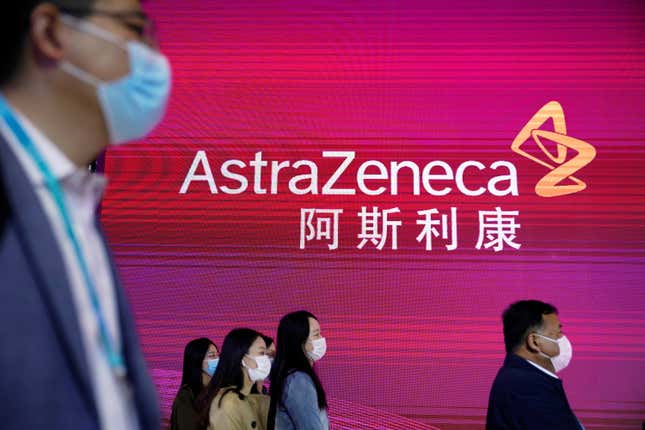An AstraZeneca executive said the quiet part about China out loud

AstraZeneca has big business in China. The British pharmaceutical company is the biggest drugmaker in the country, where it makes 13% of its revenue.
3 considerations before your company takes a stance
And it’s planning on doubling down. Earlier this year, the company announced an investment of $450 million to build a factory that would make inhalers for smokers suffering from chronic obstructive pulmonary disease. An estimated 100 million people in China have the condition, which is the second-leading cause of death in a country that is home to an estimated 300 million smokers—one-third of the global smoking population.
For the company to continue expanding its presence in China, it might need to, in the words of AstraZeneca’s president in China Wang Lei, “love the communist party.”
AstraZeneca has big business in China
Wang, who is also AstraZeneca’s global executive vice president, made the remark at an event in Wuxi to celebrate the company’s 30 years of operations in China. During his speech, Reuters reports, he said that AstraZeneca wants to “[b]uild a local, transnational company that loves the Communist Party and loves the country.”
This is the kind of pledge a Chinese company would not hesitate to make, as allegiance to the government is a de facto requirement for doing business within China. But such a statement from a foreign company is unusual.
But AstraZeneca’s ambitions in the country may be bigger than those of most other nations. The drugmaker recently signed licensing agreements with three local companies and has signaled openness to make acquisitions in the country. Further, commenting on China’s government’s recent claims that it is welcoming business with foreign companies, AstraZeneca’s CEO Pascal Soriot said that he doesn’t think tensions between China and Western countries represent a challenge for the pharmaceutical industry.
Reuters’ request for comment from AstraZeneca went unanswered, and so did Quartz’s.

Comments are closed.